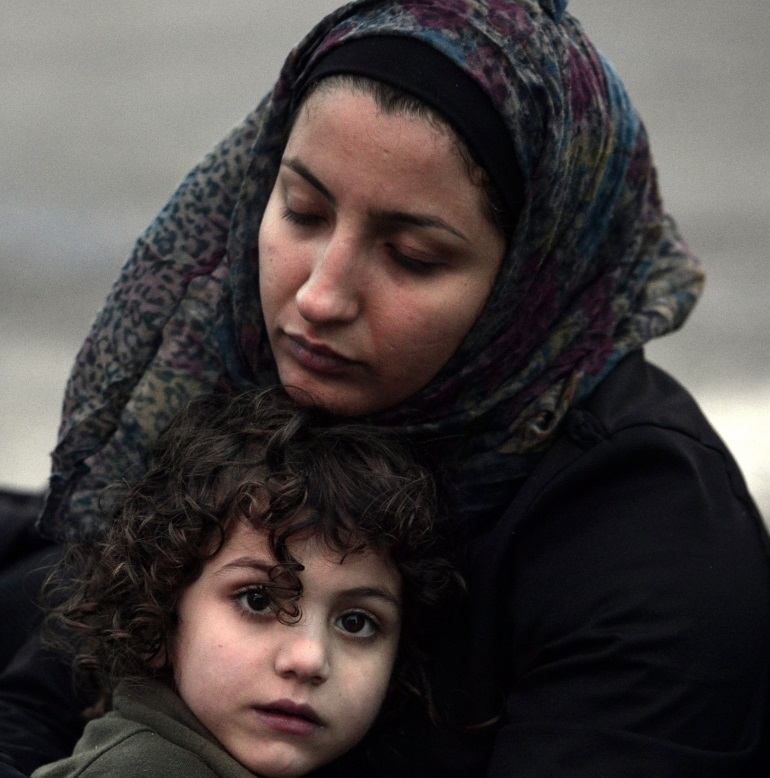A person, made in the image of God, is forcibly displaced from their home every 20 minutes due to conflict and persecution. That’s one out of every 113 people on Earth, according to the United Nations High Commissioner for Refugees (UNHCR). They represent far more than just numbers to me — I was one of them.
As a daughter of a refugee and a Christian, the call to welcome the stranger and defend the cause of the most vulnerable compels me to not remain silent in this moment.
I grew up in Communist Romania in the 70s and 80s. As members of the Hungarian minority, my family suffered stiffer persecution than the already heavily oppressed Romanian population. We were cut off from the rest of the world and at the mercy of the brutal regime of Nicolae Ceausescu, the leader of the Romanian Communist Party. Out of great desperation, my parents knew the only way to escape the despotic regime would be to flee our home in Romania.
In 1985, my mother did a very brave thing. She seized the only opportunity our family would ever have to escape. Instead of returning to Romania after a brief trip abroad, she took a plane to Athens, Greece. She was eventually granted political asylum by the United Nations and after a few months received a refugee visa to enter the United States. Two and a half years later, my father, little brother, and I were able to join her through the Family Reunification Visa, which permits sponsorship of immediate family members. We were so grateful. The U.S. Immigration Service responded to our needs for security and reunification in a timely and efficient manner. However, even those few years apart have left deep scars on our lives. Families are meant to live together — not apart.
My family’s story isn’t so different from a majority of refugees fleeing persecution today. Except today the numbers are historic. 65.6 million people around the world have been forced from home and nearly 22.5 million of them have no home. They are refugees, and more than half of them are children.
The U.S. has long been viewed as a moral leader, setting the bar for other countries. But last fall, the administration set the FY18 refugee admission goal at a historic low — a mere 45,000 individuals — and has only resettled some 10,000 halfway through the fiscal year. Like my family, refugees are simply seeking safety and to be reunified with their family members.
But at this moment, there are tens of thousands of people in a desperate state of limbo. They have been accepted to enter the United States, and many are desperate to be with reunited with their families, instead they remain in dangerous situations due to the administration’s low and slow admissions. Every day is harrowing as a variety of new administrative obstacles, executive orders, and policies restrict certain refugees from being considered, while a chronic lack of staffing and focus on enhancing already-robust security measures have dramatically slowed the pace of resettlement. It’s causing real pain for children and families longing for safety and hope.
The administration is on track to resettle less than half our commitment, just 20,000 people, into our country of 325 million. At this point, we should all be asking Congress and the administration, where are the refugees? We have the moral responsibility to fulfill the commitment we made to resettle at least these 45,000 refugees this fiscal year. Reducing and delaying the number of refugees we welcome during this massive global crisis has consequences beyond our borders, but it is refugees, among the world’s most vulnerable population, who will suffer most.
When I was a little girl, I was fortunate to be safely reunited with my mother, but today, little girls like me are waiting years and years to see their mothers again. I am again reminded of the immense value of the United States refugee resettlement program and the life changing impact it had on my family. My family is a testament to this life-saving program and the ability of refugees to become productive members of American society.
I hope members of Congress will join faith communities throughout the country in ensuring our resettlement program is not compromised, but is strong and equitable. We must hold the administration accountable for ensuring we reach our already very low resettlement goal of 45,000 desperate individuals. Our nation of immigrants, that claims family values, needs to once again put its faith in the family.

